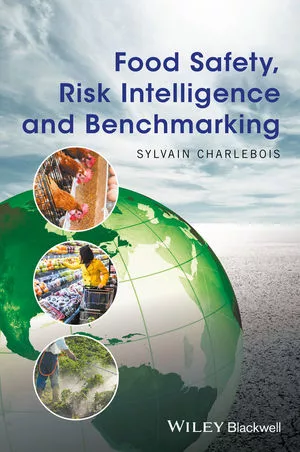Study Shows Avian Flu Does Not Pose Food Safety Risk in Various Pasteurized Dairy Products

Image credit: Freepik
Another study demonstrating the effectiveness of pasteurization for the inactivation of avian influenza in dairy products has been published—this time, focused on dairy products other than milk.
As the ongoing Highly Pathogenic Avian Influenza H5N1 (HPAI H5N1) outbreak continues to affect North American dairy herds, several studies have examined whether the virus poses a food safety risk in pasteurized milk. The science has shown that, although HPAI can be detected in cow’s milk, pasteurization inactivates the virus, rendering it non-infectious and therefore not a risk to public health. (Raw dairy, however, could potentially contain live HPAI H5N1 virus, and experts advise against consuming it).
A similar study focusing on dairy products other than milk, conducted by U.S. Food and Drug Administration (FDA) and U.S. Department of Agriculture (USDA) researchers, was recently published in the Journal of Food Protection. The study aimed to build on previous work by developing robust methods for testing different types of milk products for the presence of avian influenza viral RNA, and if present, determine if viable virus remains in the sample. Most of the products sampled and tested for the study were made from pasteurized milk, but multiple raw milk cheeses were also tested.
In the summer of 2024, FDA collected and sampled 167 milk and dairy products at retail across the U.S., which were sent to USDA’s Agricultural Research Service (ARS) for analysis. Samples included dairy product types not analyzed in FDA’s previous retail dairy survey, such as cheeses, butter, ice cream, and unpasteurized or raw milk aged cheese, with sample origin focused on regions with herds confirmed to have H5N1 HPAI virus infections. Pasteurized fluid milk samples from underrepresented geographic areas from the initial study were also included.
The researchers found that a total of 17.4 percent of all the products tested had detectable viral RNA, but all samples were negative for viable virus. The HPAI viral RNA detected in the positive samples was sequenced and shown to be closely related to recent bovine outbreak viruses.
The samples included 23 aged raw milk cheeses, which are the only dairy product for human consumption produced with unpasteurized milk that can be sold in interstate commerce in the U.S. Although produced with raw milk, none of the raw milk cheeses contained viral RNA, suggesting that the milk used to prepare these cheeses was from uninfected cows. Because there was no evidence of virus in the cheese, FDA could not draw any conclusions on whether the current requirements of 60 days of aging are sufficient to inactivate viable virus. In January 2025, FDA began a national sampling and testing assignment for HPAI H5N1 specifically in raw cow’s milk cheese.
The retail dairy survey provides additional support for the effectiveness of pasteurization for dairy products. Moreover, the revised testing methodology developed for the analysis of the samples in the study allows for the detection of viral RNA in cheese, butter, and ice cream samples, which had not previously been tested.
Looking for quick answers on food safety topics?
Try Ask FSM, our new smart AI search tool.
Ask FSM →









